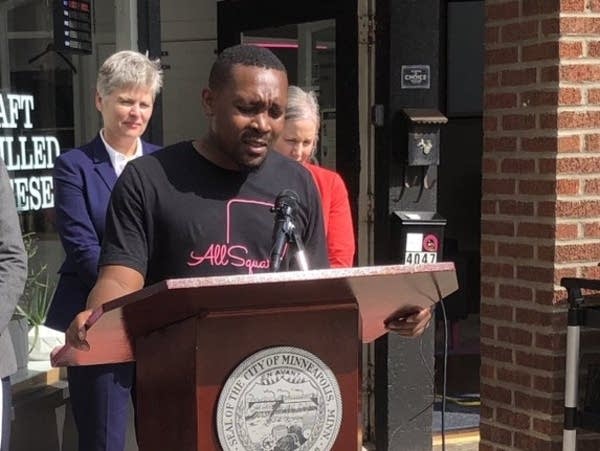Cash bail and its effect on criminal justice in the United States

Go Deeper.
Create an account or log in to save stories.
Like this?
Thanks for liking this story! We have added it to a list of your favorite stories.
Nearly half a million people are in jail in America on any given day, and people in pretrial detention make up more than two-thirds of the jail population. The law presumes they’re innocent. But they don’t have the resources to post bail.
Guest host and MPR News senior economics contributor Chris Farrell talked to two criminal justice reform experts about the history of cash bail and the role it has played in the rise of mass incarceration in the United States. They also explored the changes criminal justice reform advocates want to see — and the consequences those changes could bring.
Guests:
Insha Rahman is the vice president of advocacy and partnerships at the Vera Institute of Justice in Brooklyn. She is a former public defender and an expert in prosecutorial reform, bail and “decarceration.”
Twyla Carter is the national policy director at The Bail Project. Before joining The Bail Project, she was a senior staff attorney in the Criminal Law Reform Project at the ACLU national office.
“The status quo of the bail system is untenable,” Insha Rahman, the vice president of advocacy and partnerships at the Vera Institute of Justice, told Farrell.
Turn Up Your Support
MPR News helps you turn down the noise and build shared understanding. Turn up your support for this public resource and keep trusted journalism accessible to all.
That’s because the cash bail system effectively criminalizes poverty through pretrial detention, Twyla Carter, the national policy director at The Bail Project, said.
“The financial costs of wealth-based detention are staggering. The median bail amount in the United States is $10,000, and that represents eight months worth of income for most people held in jail,” Carter said. “People who are presumed innocent under the law actually suffer the devastating harms of incarceration unless they have enough money to buy their freedom.”
Rahman said cash bail and the associated system of pretrial detention don’t provide any public safety benefits, either. The vast majority of arrests do not involve allegations of violence that may warrant pretrial detention, and even just a day or two in jail can have a destabilizing, criminogenic effect on a person.
Plus, cash bail is not necessary to ensure people return for their court dates. Ninety percent of the people who have their bail posted by The Bail Project return to court, Carter said.
So what reforms did Rahman and Carter recommend?
First: abolishing or greatly minimizing the use of cash bail and pretrial detention — and eliminating racial disparities in release decisions.
Rahman and Carter both cautioned against the use of risk assessments like those recently employed in New Jersey to make release decisions, saying racial bias is often built into such algorithms.
Changes also need to be made to address the needs of the accused. Rahman said we have to answer the question: “What will keep them safe and supported during the pretrial period while they’re out in the community?”
That means helping people avoid work conflicts, secure transportation and find child care. It also means connecting people with social services if they need help with poverty, addiction or mental health issues.
Rahman and Carter agreed the issue of cash bail in the U.S. cannot be ignored.
“Criminal justice reform is the civil rights and racial justice issue of our time, and bail is a critical component of that,” Rahman said.
Use the audio player above to listen to the full conversation.
Subscribe to the MPR News with Angela Davis podcast on: Apple Podcasts, Google Podcasts, Spotify or RSS.
Correction (May 3, 2021): During the live show, a caller incorrectly described a detail about a warrant for Daunte Wright’s arrest. There is no evidence that there was any misaddressed mail involved in the issuing of the warrant. The incorrect statement was removed from the audio attached to this page.



